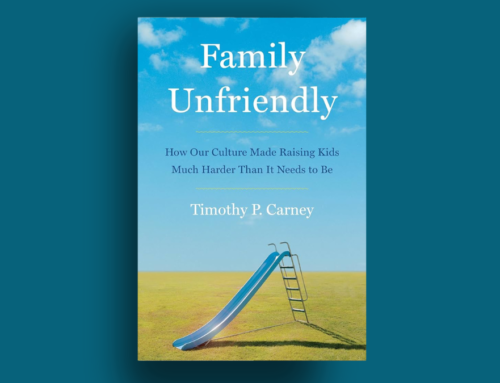“We build expensive churches and sometimes it is like erecting million-dollar launching pads to send up firecrackers.”
~Vance Havner
Growing Old Gracefully
by Pastor Paul M. Sadler
Scripture Reference:
“Rebuke not an elder, but entreat him as a father; and the younger men as brethren; the elder women as mothers; the younger as sisters, with all purity.”
– I Timothy 5:1,2
The Apostle Paul deals with many different types of relationships in his epistles, but perhaps the most delicate relationship is with those who are older in years. Like the seasons of the year, each of us gradually grow older until we find ourselves in the winter of our lives. The first 70 years are normally filled with vim and vigor as we fulfill the desires of our heart. But if by reason of strength we survive beyond this point the Scriptures indicate that the days ahead are going to be filled with labor and sorrow. Labor, in the sense that even the mundane things of life, such as rising from a chair, becomes burdensome.
To complicate matters further, sorrow surrounds us like a tattered garment as death robs us of those we love. Little wonder that Paul admonishes us to esteem the senior members of the Body of Christ as fathers and mothers. Their plight deserves our sensitivity and their years of experience our respect. Furthermore, it will serve us well to remember that someday soon we will be the patriarch or matriarch.
In Ecclesiastes wise old Solomon, stricken in years himself, describes the aging process that creeps up on us like the leopard that stalks its prey.
“Remember now thy Creator in the days of thy youth, while the evil days come not, nor the years draw nigh, when thou shalt say, I have no pleasure in them” (Ecclesiastes 12:1).
Someday the grim reaper will stand at the foot of our deathbed and the “mourners [will] go about the streets” whispering: Has he passed on? Beloved, there are thousands of ways to leave this earthly tabernacle, but perhaps the most common today is when the “pitcher is broken at the fountain.” In short, a fatal heart attack.
“Then shall the dust return to the earth as it was: and the spirit shall return unto God who gave it” (vs. 7).
The sting of death is sin, but thanks be unto God that Christ died for our sins thereby removing its sting. Thus, according to Paul’s epistles death is merely a passage way into eternal life for all those who believe (I Corinthians 15:55-57; Hebrews 2:14,15). No one looks forward to growing old, but hopefully we will do so gracefully and with dignity. As they say: “There is nothing to fear, but fear itself.” The blood of Christ is our eternal life insurance policy which has a rider guaranteeing our future resurrection!
ISHAMEL AND ISAAC
By Vance Havner
Abraham had two sons, the one by a bondmaid, the other by a freewoman. But he who was of the bondwoman was born after the flesh; but he of the freewoman was by promise.
Galatians 4:22, 23
Ishmael was the result of a resort to the flesh, proposed by Sarai when God had already promised a son by her. To this day Ishmael and Isaac war in Arab and Jew. Any scheme of our own that takes matters in our own hands when God has spoken otherwise leads to plenty of trouble.
How many today live with war in their hearts because that which is of the flesh contends with that which is of faith! Call it inhibitions, complexes, neuroses, dress it up in psychiatric verbiage, it is but Ishmael and Isaac warring in the soul.
Abraham gave up Ishmael and he never returned. He gave up Isaac but God returned him. Give God your Ishmael – all that is of the flesh – that it may not return. Give Him Isaac too – that which is of faith – that He may return it sanctified and meet for the Master’s use.
OUR COMING INHERITANCE
By Vance Havner
The wealth of the sinner is laid up for the just.
Proverbs 13:22
“The meek shall inherit the earth.” Somebody has said, “That is the only way they’ll get it.” But true it is that the saints shall live and reign with Christ, and all the wealth that sinners have accumulated will eventually pass under the jurisdiction of the righteous. We can afford to wait. The wisest of wealthy kings wrote: “For God giveth to a man that is good in his sight wisdom, and knowledge, and joy: but to the sinner he giveth travail, to gather and to heap up, that he may give it to him that is good before God” (Ecclesiastes 2:26). “The earth is the Lord’s and the fullness thereof,” and everything comes back eventually to its owner and His people. Men have their transient leases and enjoy the earth for a season, but all the wealth they gather will end up finally in the coffers of the just. The meek may serve in humble station now, but they shall come into their own. Why try to buy up so much earth now, when we shall inherit it later?
Looking For the Loophole
by Pastor Ricky Kurth
To many people, it just doesn’t seem right that God would punish someone in hell for all eternity, and so they look for loopholes in the Bible’s clear teaching about eternal damnation (Revelation 14:11). They mean well, but they remind us of what the Lord said about the rich man in hell, who pleaded that Lazarus be sent to warn his five brothers, “lest they also come into this place of torment” (Luke 16:28). It is often argued from this that this man had repented, and only a God who was a monster would refuse to release him. As we compare Scripture with Scripture, however, we believe otherwise, especially when we compare the torments of hell to the torments of the Tribulation.
There are many ways to show that the Tribulation will be a time of hell on earth, but perhaps the simplest is found when we read that “in those days shall men seek death, and shall not find it” (Revelation 9:6). What a picture of hell! You would think that everyone on the receiving end of the unfathomable torments of that day would repent in the hope that God would relent and spare them further torment. Yet despite the fact that men will be “scorched with great heat” (Revelation 16:9), in John’s vision, they “blasphemed the name of God, which hath power over these plagues: and they repented not… of their deeds” (vv. 9,11).
In light of all this, we feel the rich man’s request to warn his five brothers was not an indication of any repentance on his part—far from it. Like many incarcerated men, he was looking for a loophole in the prosecution’s case against him. You see, if Lazarus was sent from the dead to warn his brothers, he could argue that he never benefited from such a supernatural warning, making his conviction unjust.
Add it all up, and a more accurate picture of hell appears. Hell is not filled with cries of repentance to which God turns an unfeeling deaf ear. Like the description of the Tribulation we just read, the air is rather filled with the sound of blasphemy, voiced by men who are eternally convinced that God is wrong and they do not belong there.
Fortunately, dear reader, you do not have to go there. Just admit that God is right, that you are sinner (Romans 3:23) who deserves to die an eternal death for your sins (Romans 6:23; Revelation 20:14), but that Christ died for your sins so that you don’t have to (I Corinthians 15:1-4). “Believe on the Lord Jesus Christ, and thou shalt be saved” (Acts 16:31).
True Thanksgiving
by Pastor Cornelius R. Stam
Many people entertain only vague notions about thanksgiving, just as they do about faith.
They confuse faith with optimism, will power, presumption, imagination, and all sorts of other things. A doctor tells his patient that but for his faith, he never would have come through his illness. Somehow the patient was “just sure” he would recover. A smiling mother encourages her married daughter to “have faith, that everything will turn out all right.” But faith in God is believing God; believing what He has said. True faith is based on the written Word of God (See Romans 10:17).
But unregenerate men have vague ideas about thanksgiving. A man escapes some great harm and thanks his “lucky stars.” Another says: “I’m grateful for a healthy body,” but to whom is he grateful? He doesn’t say. In many cases it doesn’t even occur to him to ask. He’s “just thankful”!
How refreshing, then, it is to open our Bibles, especially to the Epistles of Paul, the chief of sinners, saved by grace, and to see him giving thanks for specific blessings, and to a specific Person — God!
“Giving thanks unto the Father, who hath made us meet [fit] to be partakers of the inheritance of the saints in light; Who hath delivered us from the power of darkness, and hath translated us into the kingdom of His dear Son” (Colossians 1:12,13).
“Thanks be unto God for His unspeakable gift!” (II Corinthians 9:15).
“Thanks be unto God, who giveth us the victory!” (I Corinthians 15:57).
“Thanks be unto God, who always causeth us to triumph!” (II Corinthians 2:14).
It is our prayer for all our readers that you may be especially thankful for “the gift of God [which] is eternal life through Jesus Christ, our Lord” (Romans 6:23).
LOVE AND LABOR
By Vance Havner
Lovest thou me?…Feed my sheep.
John 21:16
Our Lord joins love and labor. Our service for Him is a “labor of love” (I Thessalonians 1:3), a labor growing out of love. We should feed not only the sheep He has, but other sheep that He seeks we should help to bring into the fold.
Our Lord never thought of relationship to Him that does not issue in fruitfulness for Him. If we abide in Him we shall bring forth much fruit (John 15:5). He that is with Him gathers with Him. He had no thought of fellowship without fruitfulness. We are married to Another, that we might bring forth unto God (Romans 7:4).
There is no place in Scripture for this type of church member who sings, “O How I Love Jesus,” but feeds no sheep; who sings, “Rescue the Perishing,” but does no rescue work himself.
“He that hath my commandments and keepeth them, he it is that loveth me.” “Follow me and I will make you fishers of men.” Because we love we labor.
Rapturous Descriptions of the Godhead
By A.W. Tozer
Reticence and compulsion forever contend within the heart that would speak of God.
How shall polluted mortals dare
To sing Thy glory or Thy grace?
Beneath Thy feet we lie afar,
And see but shadows of Thy face.
Isaac Watts
Yet we console ourselves with the knowledge that it is God Himself who puts it in our hearts to seek Him and makes it possible in some measure to know Him, and He is pleased with even the feeblest effort to make Him known.
If some watcher or holy one who has spent his glad centuries by the sea of fire were to come to earth, how meaningless to him would be the ceaseless chatter of the busy tribes of men. How strange to him and how empty would sound the flat, stale, and profitless words heard in the average pulpit from week to week. And were such a one to speak on earth would he not speak of God? Would he not charm and fascinate his hearers with rapturous descriptions of the Godhead? And after hearing him could we ever again consent to listen to anything less than theology, the doctrine of God? Would we not thereafter demand of those who would presume to teach us that they speak to us from the mount of divine vision or remain silent altogether?
Verse
The heavens declare the glory of God; / the skies proclaim the work of his hands. Psalm 19:1
Thought
We console ourselves with the knowledge that it is God who puts it in our hearts to seek Him and makes it possible in some measure to know Him.















Leave a Reply, please --- thank you.